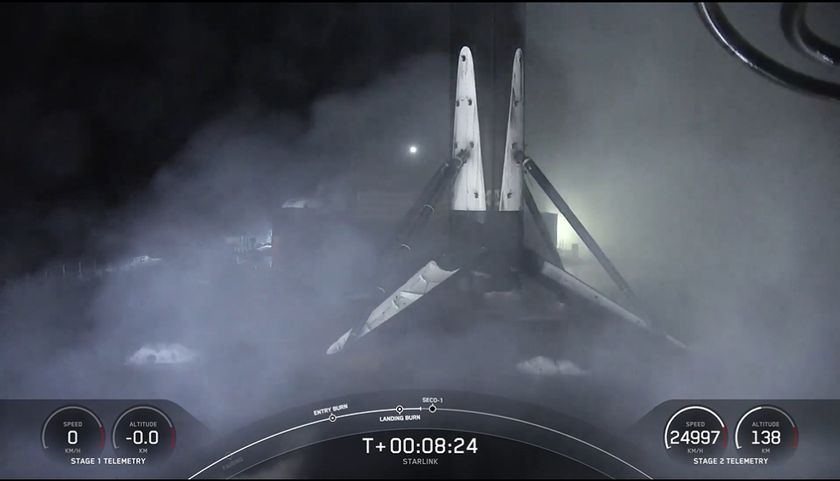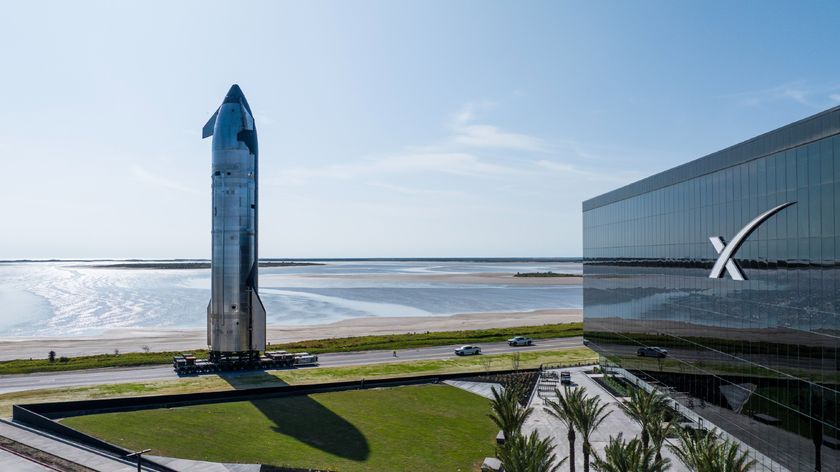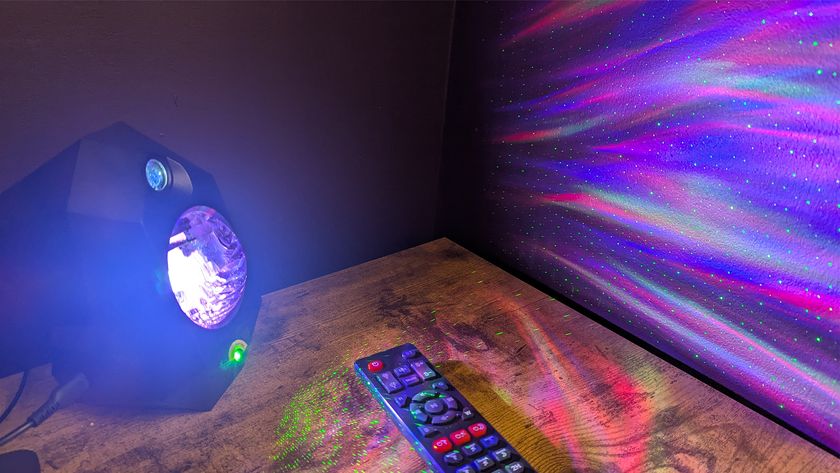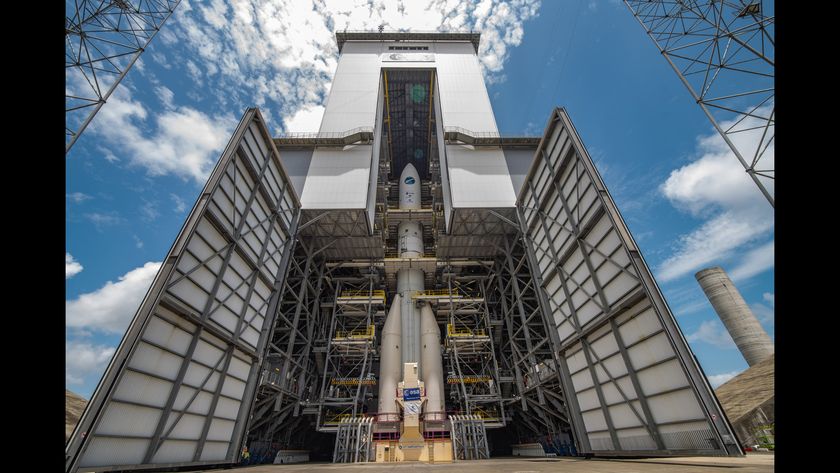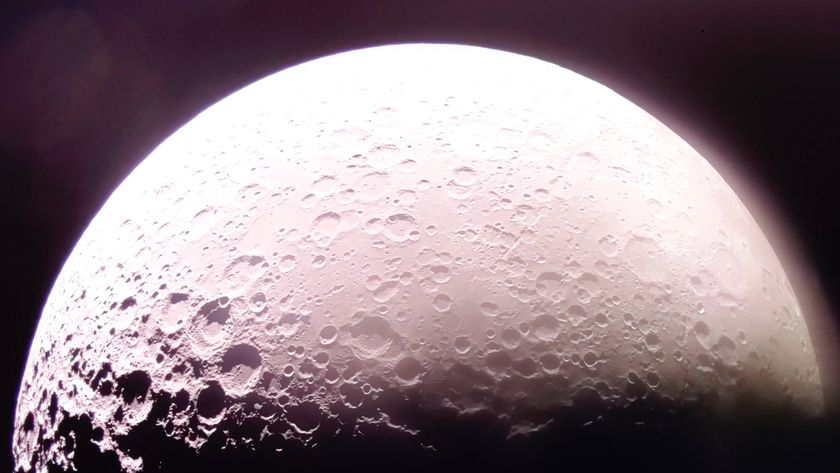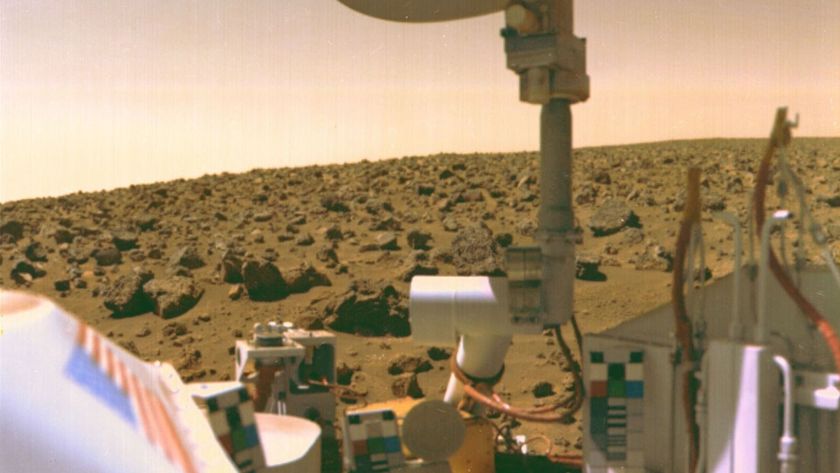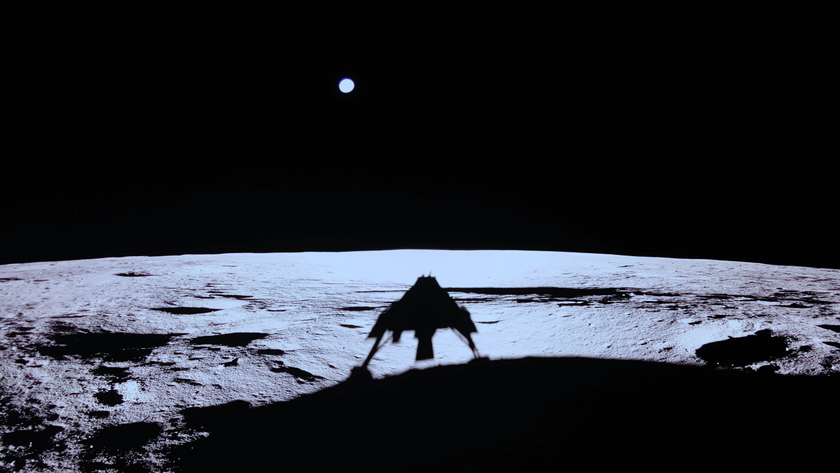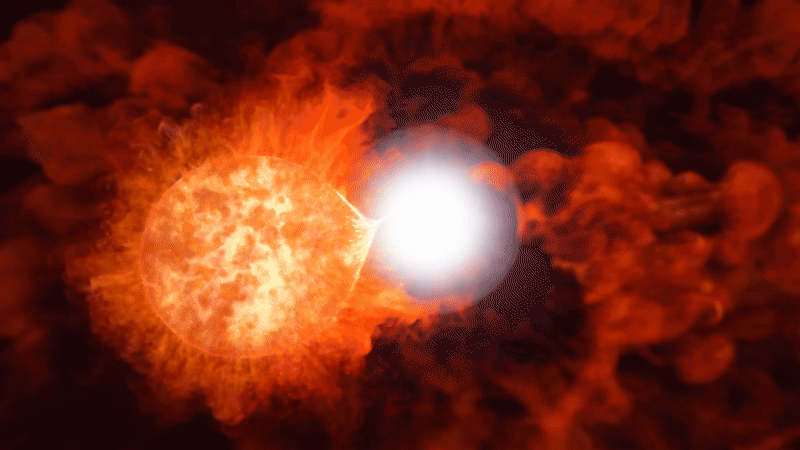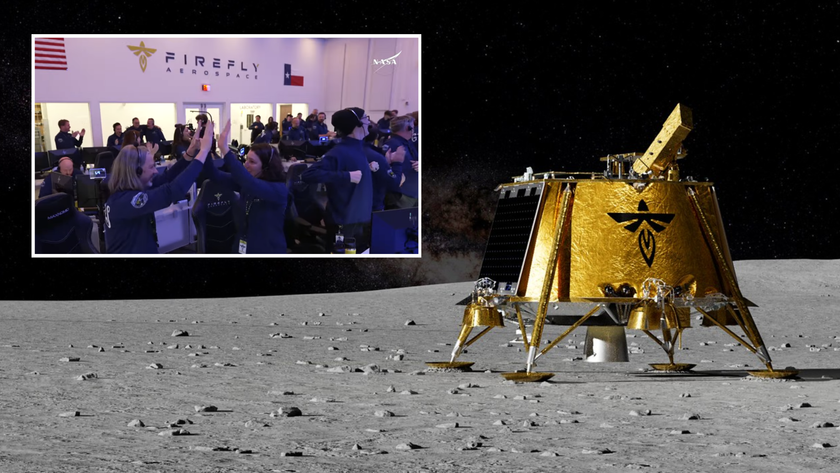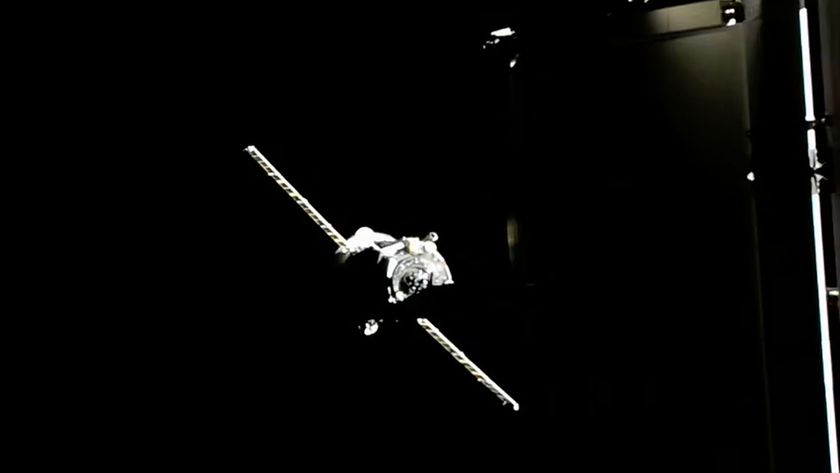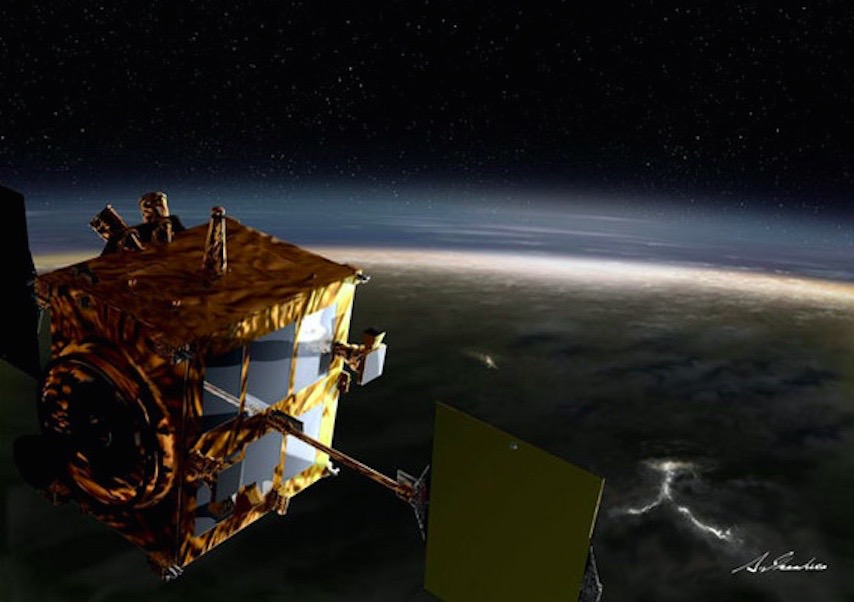
A Japanese spacecraft should be orbiting Venus now, if all went according to plan Sunday (Dec. 6).
The Japan Aerospace Exploration Agency's Akatsuki probe fired its small attitude-control thrusters for 20 minutes Sunday evening in a second and final attempt to enter Venus orbit. Akatsuki's first try — which came exactly five years earlier, on Dec. 6, 2010 — failed when the probe's main engine conked out during the orbit-insertion burn, sending the spacecraft sailing off into deep space.
It's too early to know if Akatsuki is indeed safely circling the second planet from the sun, the spacecraft's handlers said.
"The orbiter is now in good health," Japan Aerospace Exploration Agency (JAXA) officials wrote in a mission update Sunday. "We are currently measuring and calculating its orbit after the operation. It will take a few days to estimate the orbit; thus we will announce the operation result once it is determined."
The $300 million Akatsuki mission, whose name means "Dawn" in Japanese, launched in May 2010 to study the clouds, weather and atmosphere of Venus, with the aim of helping scientists understand how the planet ended up so much hotter and less life-friendly than Earth. (Surface temperatures on Venus are hot enough to melt lead.)
Akatsuki's orbit will be much more elliptical than originally planned — featuring a period of 8 or 9 days, compared to 30 hours for a 2010 Venus arrival — if Sunday's maneuver worked. But the probe should still be able to achieve most of its mission goals, JAXA officials have said.
Akatsuki performed the engine burn Sunday at 6:51 p.m. EST (2351 GMT; 8:51 a.m. on Dec. 7 Japan Standard Time), according to the JAXA update.
Get the Space.com Newsletter
Breaking space news, the latest updates on rocket launches, skywatching events and more!
Follow Mike Wall on Twitter @michaeldwall and Google+. Follow us @Spacedotcom, Facebook or Google+. Originally published on Space.com.
Join our Space Forums to keep talking space on the latest missions, night sky and more! And if you have a news tip, correction or comment, let us know at: community@space.com.

Michael Wall is a Senior Space Writer with Space.com and joined the team in 2010. He primarily covers exoplanets, spaceflight and military space, but has been known to dabble in the space art beat. His book about the search for alien life, "Out There," was published on Nov. 13, 2018. Before becoming a science writer, Michael worked as a herpetologist and wildlife biologist. He has a Ph.D. in evolutionary biology from the University of Sydney, Australia, a bachelor's degree from the University of Arizona, and a graduate certificate in science writing from the University of California, Santa Cruz. To find out what his latest project is, you can follow Michael on Twitter.

